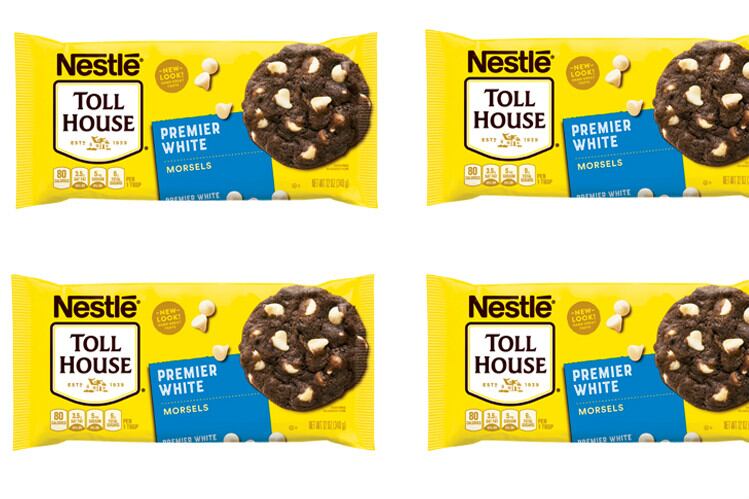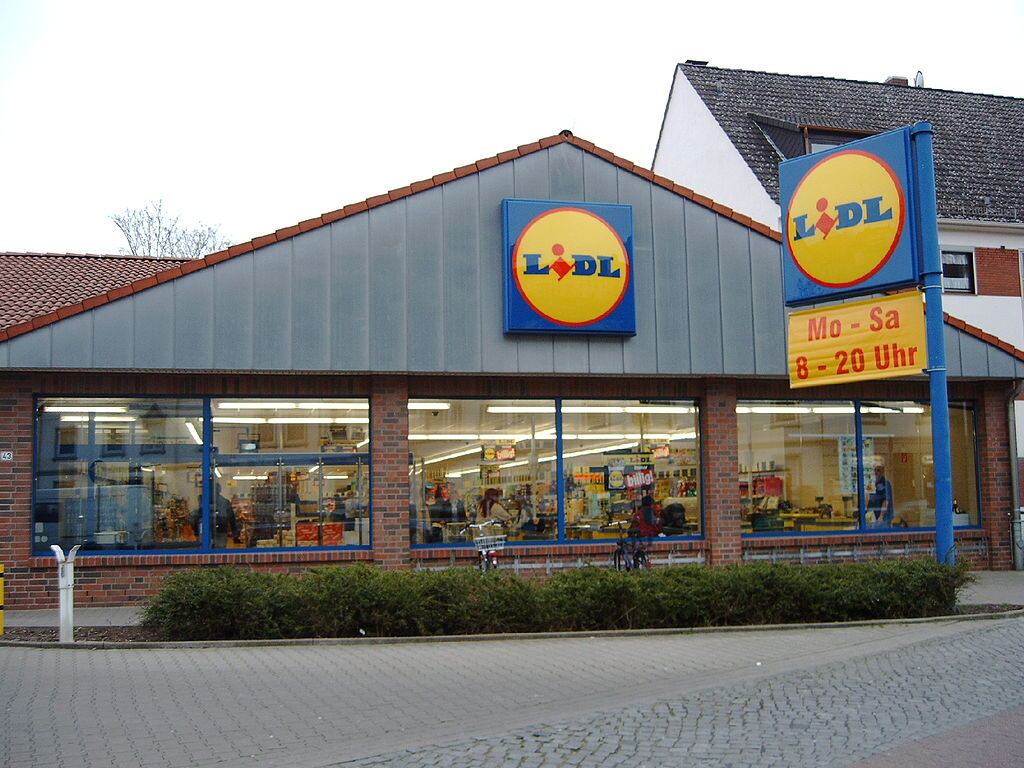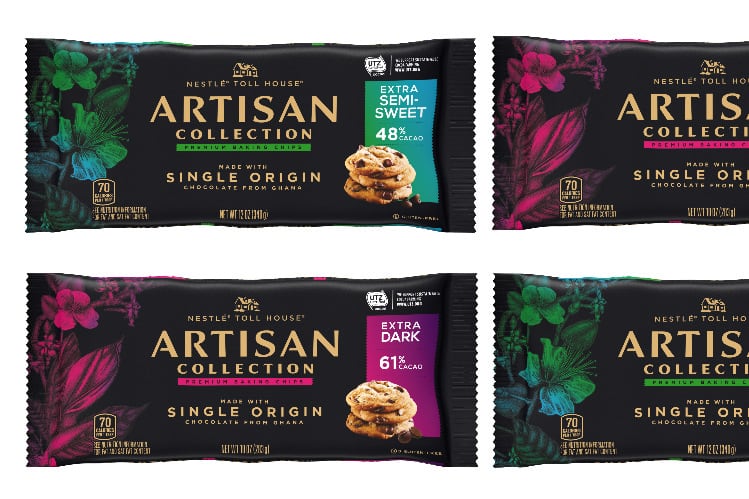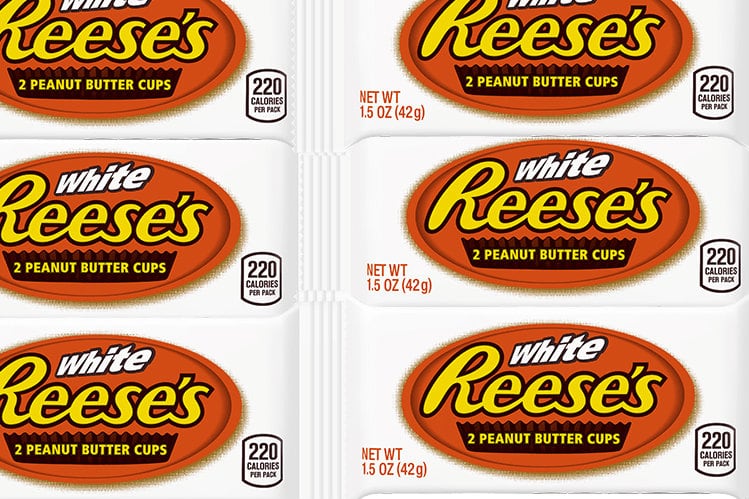Two individuals, Steven Prescott and Linda Cheslow, say they purchased the chips believing them to contain cocoa butter – the primary ingredient in white chocolate.
Hershey was sued in July for a similar complaint against its White Reese’s, and pointed ConfectioneryNews to the product’s formal title of ‘white crème.’
The plaintiffs in the case against Nestlé explain that Premier White morsels are merchandised directly next to Nestlé’s other Toll House chips, which include a milk, dark and semisweet chocolate. Those packages all prominently feature the words ‘100% real chocolate’ on front of pack.
The Premier White bag omits that description.
“Reasonable consumers do not expect that the product does not contain white chocolate, or inferior ingredients such as hydrogenated oils. Indeed, Nestlé is synonymous with chocolate [sic], not oil,” the filing reads.
Nestlé did not respond to several requests for comment.
Just this September, the confectionery giant – and one of the world’s largest CPG companies – unveiled its Artisan Collection of single-origin chocolate morsels with higher cacao percentages.
What does ‘premier’ mean in chocolate?
The lawsuit, filed on September 19 in the Superior Court of California in Santa Cruz county, calls out the Toll House Premier White morsels as ‘fake’ and packaged in ‘deceptive labeling and advertising.’ It goes on to define the term ‘premier’ as ‘first in position, rank or importance’ (per Merriam-Webster), and describes the brand’s other morsels as ‘true and correct representations’ of chocolate chips – as the consumer understands them.
Pointing to several negative reviews on the Toll House website, the suit notes that other consumers have noticed the difference, too.
“These don’t have chocolate in them and don’t taste like white chocolate – I was fooled by the premium label,” said one review.
Others commented that the chips did not melt the way that white chocolate made with cocoa butter would.
The FDA defines white chocolate as ‘the solid or semi-plastic food prepared by intimately mixing and grinding cacao fat with one of more of the optional dairy ingredients specified,’ as well as ‘one or more optional nutritive carbohydrate sweeteners.’ It cannot be colored and must contain at least 20% cacao fat by weight, or 3.5% in the finished product.
The suit specifically explains that it is not claiming noncompliance with FDA standards of identity, but rather that Nestlé has promoted its Premier White morsels as white chocolate.
The ingredient deck starts with sugar, followed by fractionated palm kernel oil, milk and nonfat milk, hydrogenated palm oil, soy lecithin and natural flavor.
Class actions abound, but what will come of this one?
The plaintiffs are seeking injunctive relief and restitution for false and misleading advertising. They previously shared notice of these violations with Nestlé in June, according to court documents.
Ryan J. Clarkson, one of the lawyers at Clarkson Law which brought the suit, told ConfectioneryNews that "Nestlé is synonymous with chocolate," and that the side-by-side positioning with milk or dark chocolate morsels is "unfair to consumers and to honest confectioners who play by the rules."
He said the goal of the lawsuit is to "level the playing field among confectioners competing for market share and increase transparency for consumers."
At the heart of the complaint lies the claim that the plaintiffs would not have purchased the product had they known it did not contain cocoa butter.
They would buy the product in the future “if they could be sure that [it] was white chocolate, or if [Nestlé] dispelled any confusion that the product does not contain white chocolate in its labeling, packaging and advertising.”




